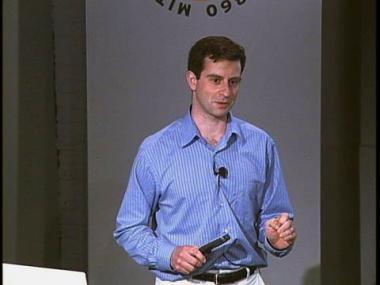
|
Next Generation Solar Cells: Lowering Costs, Improving Performance and Scale
According to Tonio Buonassisi, we’re “on the cusp” of achieving a competitive technology for capturing the limitless energy of the sun. Buonassisi, in conversation with an MIT Museum audience, describes how, with the work of MIT and other researchers, photovoltaics may finally be coming into its own. Buonassisi describes solar cells as his “life’s passion” since age 16, but scientists have been laboring somewhat longer to figure out how to convert sunlight to useful power on Earth. In 1954, Bell Labs pioneered the first solar cell. It took 12 thousand dollars’ worth of these “to run an ordinary household toaster,” says Buonassisi. In spite of a great leap forward in the 1990s, with breakthroughs around the purification of silicon crystals and large subsidies for national industries in Japan and Germany, solar energy today constitutes just 1% of total electric generation worldwide.  The process behind solar cells appears straightforward, involving the sun’s light energy (photons) exciting electrons inside some substrate; the separation of positive and negative charges; and then the collection of those charges into an external circuit. Yet scaling up this industry to compete with coal and other fossil fuels has proven daunting. Buonassisi sees several hurdles to overcome: lower materials and processing costs, improved conversion efficiencies of cells, and better manufacturing yields. He says that it takes half a square meter-sized solar panel to power a 100-watt bulb, for instance, and it would require a land area equivalent to 1/3rd the size of Nevada to convert enough sunlight to electricity for the whole U.S. In some parts of the world with intense, year-round sun, solar makes sense already, but in the cloudy, wintry northeastern U.S., huge subsidies are still required to make a go of it. Buonassisi is still optimistic: His own group removes impurities from materials that serve as wafers for solar cells, so cells can convert photons to electrons more e...
Video Length: 0
Date Found: August 29, 2009
Date Produced: June 02, 2009
View Count: 0
|